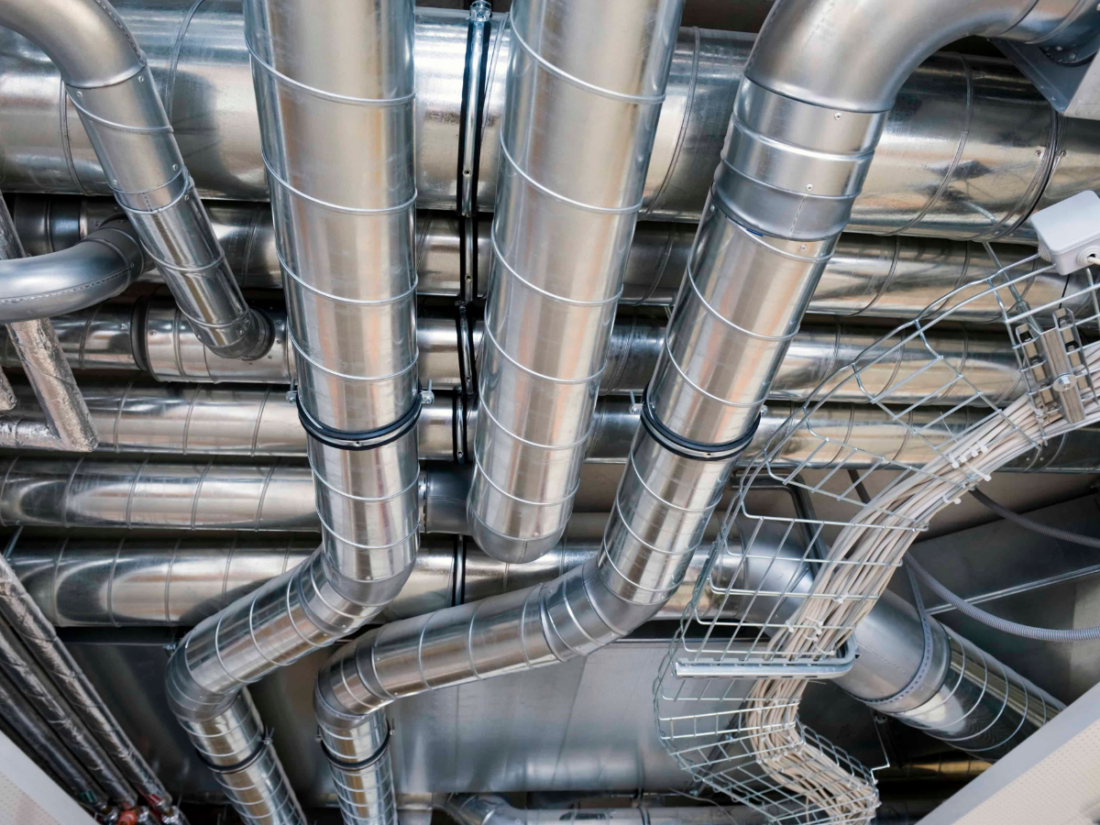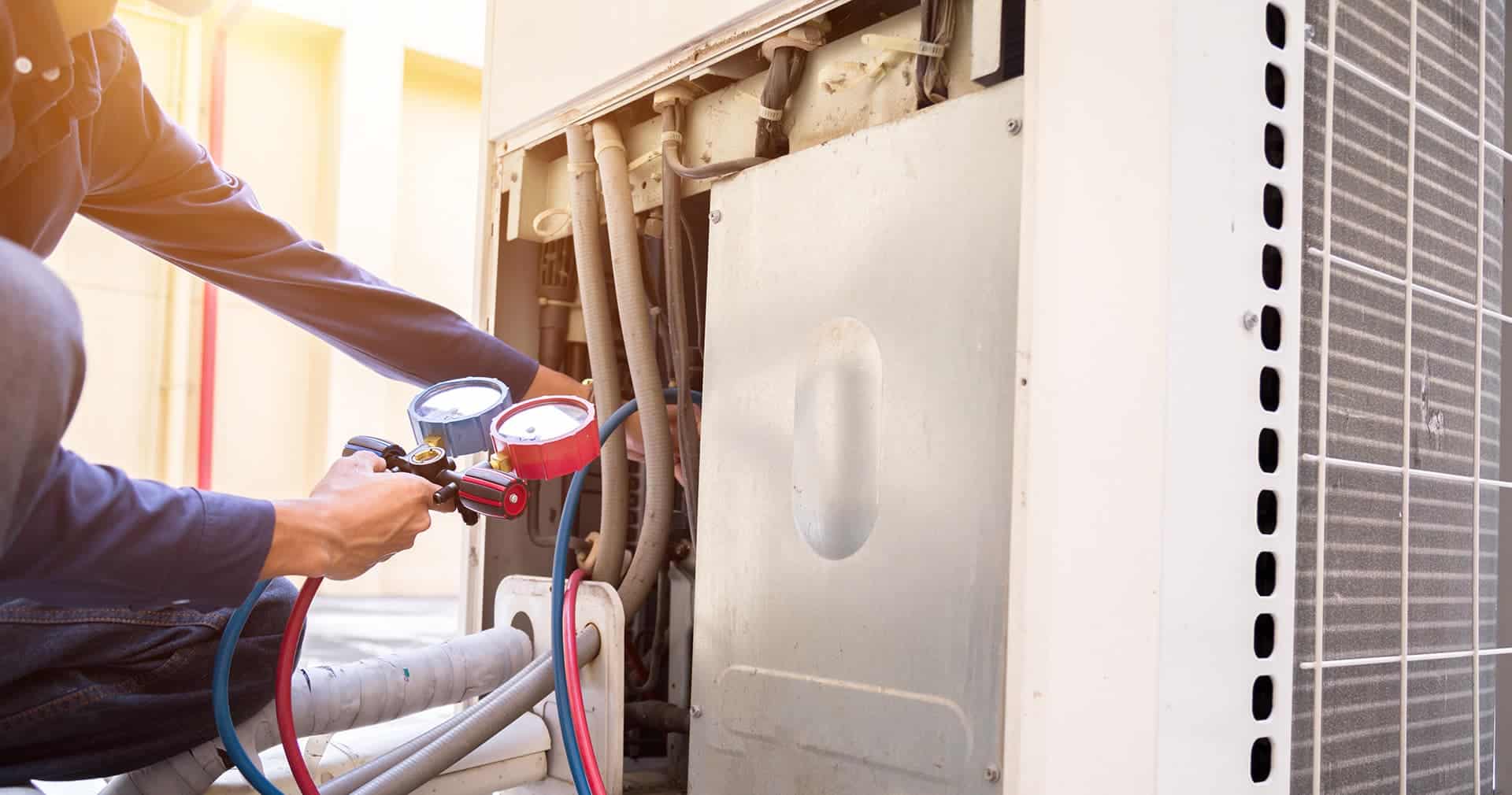Understanding the Different Kinds Of Heating And Cooling System for Optimum Efficiency
Understanding the various sorts of HVAC systems is vital for property owners intending to boost comfort and energy efficiency. Central air conditioning systems give consistent temperature control, while ductless mini-split systems supply versatility. Warmth pumps provide efficient year-round climate management. For smaller sized spaces, home window and portable a/c unit act as practical remedies. Geothermal systems make use of constant below ground temperatures for lasting heating & cooling. Each choice holds distinct benefits, motivating a better examination of which could suit specific requirements best.
Air Conditioning Systems
Several homeowners look for methods to improve interior comfort, comprehending central air conditioning systems is vital for effective climate control. Central air operates by circulating cool air with a system of ducts, distributing it equally throughout the home. This kind of system includes a number of key elements, consisting of an outdoor compressor, an indoor evaporator coil, and a network of ductwork.
The compressor cools down refrigerant, which after that takes in warmth from interior air as it travels through the evaporator coil. This cooled air is pressed with the ducts and into living rooms, ensuring a constant temperature. Central air systems are understood for their efficiency, typically utilizing programmable thermostats to enhance power usage. Normal upkeep, such as filter changes and system checks, is important to ensure durability and performance. Recognizing these elements helps home owners make notified choices relating to installment and maintenance, ultimately improving comfort and power performance in their homes.

Ductless Mini-Split Equipments
Ductless mini-split systems supply a flexible alternative to typical central air, accommodating homeowners looking for efficient climate control without the requirement for considerable ductwork. These systems are composed of an exterior compressor system and one or even more interior air-handling units, allowing for targeted cooling and home heating in specific locations or areas. This zoning capacity boosts convenience by enabling individuals to change temperature levels based upon private choices, inevitably bring about energy cost savings.
Installment is typically simpler and much less invasive contrasted to ducted systems, which can be valuable for older homes or areas with minimal structural alterations. Additionally, ductless mini-split systems frequently feature energy-efficient modern technologies, such as inverter-driven compressors, which enhance energy intake based upon need. Their small style also enables various placement alternatives, making them suitable for unique or limited areas. Therefore, ductless mini-split systems have gained popularity amongst property owners seeking modern-day, reliable cooling and heating solutions.
Heat Pumps
Heat pumps stand for a functional and energy-efficient choice for both home heating and cooling down residential rooms. These systems operate by moving warm as opposed to creating it, making them particularly efficient in modest environments. Throughout warmer months, heat pumps extract warmth from inside and launch it outside, providing cooling. Conversely, in winter months, they reverse this process, attracting heat from the outside air or ground to warm the interior.
There are 2 key kinds of heatpump: air-source and ground-source (or geothermal) Air-source heat pumps are extra typical as a result of their easier setup and reduced first expense, while ground-source models boast higher effectiveness and security in performance. In addition, heat pumps can especially reduce energy bills and carbon impacts when compared to typical home heating approaches, making them an environmentally friendly selection. Overall, heatpump stand as a compelling remedy for property owners looking for effective climate control throughout the year.
Home Window and Portable Air Conditioners

On the other hand, portable air conditioning system offer flexibility, as they can be conveniently moved from area to space. These devices generally call for an airing vent package to wear down warm air with a home window, yet they provide a hassle-free choice for short-lived cooling requirements.
Both kinds of air conditioning system are appropriate for tenants and those seeking to avoid comprehensive installation procedures. Users need to think about aspects such as BTU capability, power efficiency rankings, and sound degrees when choosing a system to assure peak performance for their particular area and air conditioning requirements.
Geothermal Home Heating and Cooling Solutions
As energy performance becomes increasingly crucial, geothermal heating & cooling systems have actually gotten popularity for their lasting technique to climate control. These systems use the steady temperatures located below ground to give heating in winter and air conditioning in summer season. By harnessing the earth's all-natural thermal power, geothermal systems substantially minimize reliance on nonrenewable fuel sources and lower utility expenses.

Geothermal systems generally need much less upkeep compared to conventional Heating and cooling systems, resulting in lasting financial savings. With raising recognition of environment modification, these systems stand for a forward-thinking option for those seeking green and efficient heating and cooling alternatives
Regularly Asked Inquiries
Exactly how Usually Should I Service My Heating And Cooling System?
Cooling more info and heating systems ought to ideally be serviced twice a year, once in the springtime and when in the autumn. Routine upkeep helps ensure effectiveness, extends lifespan, and stops pricey break downs during top use periods.
What Size A/c System Do I Required for My Home?
Determining the suitable dimension for an a/c system requires calculating the home's square video footage, insulation high quality, and environment. A specialist evaluation assurances optimal performance, convenience, and power savings customized to the particular demands of the home.
Can I Set Up a HVAC System Myself?
Mounting a HVAC system individually is possible, yet it needs technical understanding and abilities. Mistakes can lead to inadequacy or safety and security hazards, so seeking advice from an expert is frequently suggested to guarantee correct setup and conformity with regulations.
What Are the Signs My HVAC System Requirements Fixing?
Indicators that an a/c system needs repair service include unusual noises, irregular temperatures, increased energy costs, undesirable smells, and frequent biking. Prompt focus to these indicators can stop further damage and warranty optimal system efficiency.
Just How Can I Improve My cooling and heating System's Power Performance?
To enhance HVAC power performance, one must on a regular basis change filters, seal ducts, mount a programmable thermostat, guarantee proper insulation, and schedule regular upkeep checks. HVAC experts. These actions collectively enhance efficiency while reducing energy usage and costs
Central air conditioning systems offer uniform temperature control, while ductless mini-split systems supply adaptability. Central air conditioning operates by circulating great air with a system of air ducts, dispersing it uniformly throughout the home. Central air conditioning systems are understood for their performance, commonly making use of programmable thermostats to enhance energy usage. Ductless mini-split systems provide an adaptable choice to typical central air conditioning, providing to house owners seeking effective climate control without the requirement for substantial ductwork. Geothermal systems usually need less upkeep contrasted to conventional A/c systems, resulting in lasting savings.